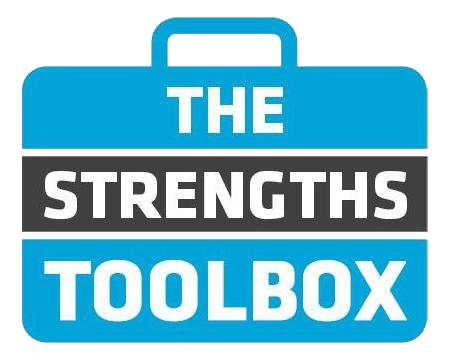
In his book, “The 7 Habits of Highly Effective People”, Stephen R. Covey refers to the 7th habit as “Sharpen the Saw”.
He describes a scene where you come across someone in the woods working feverishly to saw down a tree.
“What are you doing” you ask?
“Can’t you see?” comes the impatient reply. “I’m sawing down this tree.”
“You look exhausted!” you exclaim. “How long have you been at it?”
“Over five hours” he returns, “and I’m beat! This is hard work”
“Well, why don’t you take a break for a few minutes and sharpen that saw?” you inquire. “I’m sure it would go a lot faster”
“I don’t have time to sharpen the saw,” the man says emphatically. “I’m too busy sawing!”
Habit 7 is taking the time to sharpen the saw. It’s enhancing the greatest asset you have – you!
Covey suggests that successful business people spend more time on themselves than on their businesses.
What about you? How much time and resources have you invested in sharpening yourself, and if applicable, your staff? One very successful business man suggests that you should invest 10% of your income in developing yourself.
Sadly, when times are tough, one of the first things organisations cut in their budget is investing in their staff. Yet, the one thing that will help get them through the tough times, are their staff! Your staff are no doubt your single biggest asset, and deserve to be treated as such. Managers who refuse to invest in their staff are seriously inhibiting their growth opportunities.
Gallup have done extensive research over the past five decades into what makes people perform at their peak. The results have been profound. The research indicates that when people are helped to understand their own unique talents and strengths, and have the opportunity to work with their strengths each day, they perform at their peak.
Furthermore, their research into people and performance ended up with a list of 34 “Talent Themes” which exist in people. Gallup have designed an online assessment which identifies a persons rank listing of their 34 talent themes, or strengths. Thus far, over 20 million people worldwide have completed the online assessment (which takes about 30 minutes).
The power of accessing your strengths at the top of the list, and an awareness of your lesser themes (weaknesses) at the bottom of the list, is in using ones understanding of these strengths and weaknesses to achieve maximum results in the workplace, relationships and even in your private life.
An interesting aspect of Gallup’s research is that you can’t “fix” a weakness. Yet, that is exactly what most of us do. We are fixated on “weakness fixing”. When little Johnny comes home from school with his report, his parents initially commend him for an overall good report, but thereafter the focus shifts to the one subject which Johnny struggled with. All the talk is now about how Johnny can “fix” his weakness. Or an employee may be very good at their work, but the boss feels that her contribution at staff meetings is very poor. He then considers ways to “fix” her weakness.
A “strengths based” approach would rather focus on managing weaknesses, and allowing the person to achieve their best results from working in their strengths zone. Take the case of little Johnny. Instead of draining his energy by forcing him to work on something he is not naturally talented at, it would be better to simply manage that weakness (Gallup have various ideas and tools for doing so), and encouraging Johnny to enjoy building on his natural talents which he already excels at.
Next, let’s take a closer look at the employee who is apparently slow to contribute at staff meetings, despite her work being of a very high standard. If her boss invested in her development by having her complete the Gallup online assessment (“StrengthsFinder), they may be pleasantly surprised to see a Talent Theme called “Deliberation” in her Top 5 Strengths. Using the Gallup tools, or with the support of a Gallup Strengths coach, they come to learn that people with “Deliberation” in their Top Strengths carefully consider relevant facts, and weigh up possible influencing factors, before arriving at a decision. Decisions are consequently more valuable as a result of such careful evaluation. Now her boss appreciates, that to get the best out of her, she needs more time to offer input during a group discussion than people without “Deliberation” as a strength, with the benefit that her contribution will then be very valuable.

Here are a few of the findings that Gallup research has revealed:
- Gallup research finds that people who use their Clifton-Strengths are more engaged and productive at work and 3x more likely than others to have an excellent quality of life.
- The best managers boost individual and team performance using Clifton-Strengths. In fact, nearly 7 in 10 employees who say their manager focuses on their strengths are engaged.
- A strengths-based approach is essential for creating an exceptional workplace culture. That’s why more than 90% of the Fortune 500 companies use Clifton-Strengths.
The conclusion?
Stop trying to be more of who you’re not, and start focusing on what naturally makes you powerful and unique. Maximize your potential with Clifton-Strengths 34 — the proven way to live your strongest life possible.
Even if you do not take the Clifton Strengths assessment, an understanding of these principles on its own will help you to think about maximizing your performance by focusing on how you can work with your natural talents and strengths (activities which you enjoy and are good at), instead of weakness fixating.
(Eberhard Niklaus is a Gallup Certified Strengths Coach, and has worked with hundreds of people -Executives and Business Teams- to develop them as people and teams using the Gallup “Strengths Based” Development programme)
“Contact Eberhard TODAY for your FREE 30-minute Zoom CONSULTATION to learn more about how to unlock your potential and accelerate the results you want in your life.”




